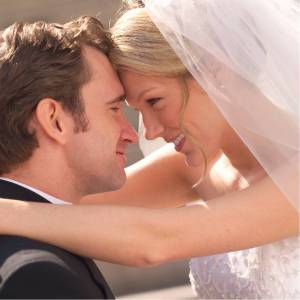 Are women aware of their dignity? Do we demand respect?
Are women aware of their dignity? Do we demand respect?
Dignity and respect go hand in hand.
Dignity is what we see in ourselves, and respect is what we require of others because of it.
When it comes to marriage, the plan for dignity and respect is simple.
If you love me, I require you to marry me. If you do not love me enough to marry me, then find someone else to go to bed with.
Old-fashioned? Let's think about it.
In the first place, old-fashioned is not a bad thing to be when it sets you apart from everybody else. I spent twenty years in advertising trying to set my clients apart from everybody else and show their differences so that they would succeed. Being different can be very good!
I realize it's hard to tell that to a teenager, but it isn't primarily teenagers who are sleeping with other people without the benefits of marriage. Benefits? Yes!
So let's talk about benefits.
Marriage, the union of one man and one woman, is a personal, but not private, relationship with great public significance. Marriage is good for the couple; it is also provides the optimal conditions for bearing and raising children.
Harvard psychologist and psychotherapist Mark O'Connell, PhD. says this: Marriage is more than just wearing a ring on your finger. Marriage is an intimate and enduring relationship that grows over time and makes you a better person. Dr. O'Connell contends that there is something about sustained intimacy that offers people a chance to get to know themselves and each other in a way that is more honest and real.
Family can be a great training ground for the kind of virtues that lead to successful careers. Family life teaches perseverance, cooperation, the ability to get along with others, and respect for authority – all virtues that are valued highly in the workplace.
The Social Benefits of Marriage are many. Marriage makes an essential contribution to the common good.
Marriage and Health
• On average, husbands and wives are healthier, happier and enjoy longer lives than those who are not married.
• Men appear to reap the most physical health benefits from marriage and suffer the greatest health consequences if they divorce.
• Married mothers have lower rates of depression than single or cohabiting mothers, probably because they are more likely to receive practical and emotional support from their child’s father and his family.
Marriage and Wealth
• Married couples build more wealth on average than singles or cohabiting couples.
• Married men earn more money than do single men with similar education and job histories.
• Married women are economically better off than divorced, cohabiting or never-married women.
Marriage and Children
Children raised by their own married mother and father are:
• Less likely to be poor or to experience persistent economic insecurity
• More likely to stay in school, have fewer behavioral and attendance problems, and earn four-year college degrees
• Less vulnerable to serious emotional illness, depression and suicide
• More likely to have positive attitudes towards marriage and greater success in forming lasting marriages
Marriage and Crime/Domestic Violence
• Married women are at lower risk for domestic violence than women in cohabiting or dating relationships.
• Boys raised in single-parent homes are more likely to engage in criminal and delinquent behavior than those raised by two married biological parents.
• Married women are significantly less likely to be the victims of violent crime than single or divorced women. Married men are less likely to perpetrate violent crimes than unmarried men.
Marriage and Society
• The institution of marriage reliably creates the social, economic and affective conditions for effective parenting.
• Being married changes people’s lifestyles and habits in ways that are personally and socially beneficial. Marriage is a “seedbed” of prosocial behavior.
• Marriage generates social capital. The social bonds created through marriage yield benefits not only for the family but for others as well, including the larger society.
Sources: Why Marriage Matters: Twenty-Six Conclusions from the Social Sciences (Institute for American Values); Healthy Marriages, Healthy Lives: Research on the Alignment of Health, Marital Outcomes and Marriage Education (California Healthy Marriages Coalition); Testimony of Dr. Barbara Dafoe Whitehead, National Marriage Project, before the U.S. Senate Subcommittee on Children and Families.
So think about dignity, think about respect, consider the benefits, and then say to the one you love: "Take me down to the little white church!"
Copyright 2014 Kaye Hinckley
About the Author

Guest
We welcome guest contributors who graciously volunteer their writing for our readers. Please support our guest writers by visiting their sites, purchasing their work, and leaving comments to thank them for sharing their gifts here on CatholicMom.com. To inquire about serving as a guest contributor, contact editor@CatholicMom.com.


.png?width=1806&height=731&name=CatholicMom_hcfm_logo1_pos_871c_2728c%20(002).png)
Comments